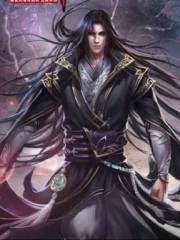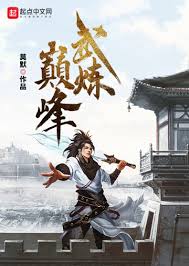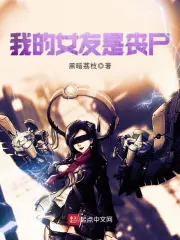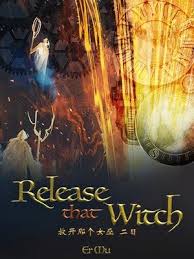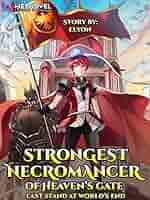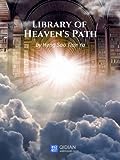The Story in 3 Sentences
Chu Feng begins as a commoner in the Nine Nether heavens, where status is dictated by cultivation strength and bloodline heritage, yet he harbors a latent potential that defies the rigid hierarchy of sects and clans.
His fate shifts irrevocably when he awakens the Asura Bloodline, an ancient power system shrouded in myth and dread, allowing him to break through mortal limits and step onto the path of the Martial God.
Thrust into a world of sect wars, demonic beasts, and political machinations, Chu Feng’s journey is marked by brutal battles, emotional isolation, and the relentless pursuit of strength in a universe that demands sacrifice for every breakthrough.
Why It Stands Out
1. Blending Brutality with Spirituality: Raw Martial Art Meets Ancient Mythos
Martial God Asura doesn’t just depict combat—it fuses physical violence with spiritual transcendence, making every punch, every shattered bone, a step toward enlightenment. The Asura Bloodline isn’t merely a power-up; it’s a curse and a calling, demanding blood, pain, and will to evolve. This interweaving of flesh and spirit transforms fights into rituals, where victory isn’t just survival but a metaphysical breakthrough. Fans praise this depth, noting how the series elevates xuanhuan beyond spectacle into something closer to philosophy—where the soul is tested as much as the body.
2. Complex Power Structures and Relentless Struggle Against Fate
The Nine Nether heavens isn’t a world of clear heroes and villains but a web of sects, clans, and hidden forces vying for dominance. Chu Feng’s rise isn’t just personal—it’s a disruption of the natural order, challenging the Heaven Sect, the Azure Cloud Sect, and the very notion that bloodline determines destiny. His enemies aren’t just strong; they’re entrenched in systems of power that resist change. The emotional toll is real: betrayal, loss, and the erosion of self haunt him, making his strength feel earned, not granted. This moral complexity—where power isolates as much as it empowers—resonates with readers tired of simplistic progression.
3. Immersive Storytelling With Rich, Persistent World-Building
Few cultivation novels sustain coherence over thousands of chapters, but Martial God Asura builds its world like a living ecosystem. From the icy halls of the Heaven Sect to the war-torn borderlands of the Demon Realm, geography, history, and cultivation laws evolve with the narrative. The Asura Bloodline’s origins, the role of the Martial God in ancient prophecy, and the politics of the Nine Nether heavens aren’t dropped in exposition but revealed through action and consequence. Fans describe it as a “living epic,” where every arc—from early trials to late cataclysms—feels like a necessary thread in a grand tapestry. This consistency rewards long-term readers and fuels endless theorycrafting in global forums.
Characters That Leave a Mark
There’s Xu Qingqing – a master of ice-based techniques from the Heaven Sect, whose calm exterior masks a fierce will and deep emotional connection to Chu Feng. She isn’t just a love interest; she challenges him, balances his fire with her frost, and stands as a symbol of strength that doesn’t need validation from male warriors. Her presence adds both combat synergy and emotional nuance, especially in arcs where Chu Feng’s isolation threatens to consume him.
You’ll meet Ling Yun, who serves as the cunning sect master of the Azure Cloud Sect and a major antagonist during the Sect Wars. His strategic mind and political maneuvering make him a formidable opponent, not just in battle but in influence. Yet fans appreciate his complexity—he isn’t evil, but a man burdened by duty, trying to preserve his sect in a world shifting beneath his feet. His clashes with Chu Feng aren’t just personal; they represent the collision of old order and new force.
And Long Tianming? They’re the one who stands as Chu Feng’s unwavering brother from their hometown, a grounding force in a story filled with betrayal and loss. His loyalty isn’t blind; it’s tested, broken, and rebuilt, making him one of the few characters who sees Chu Feng not as the Martial God but as a man. In the lonelier arcs, especially during Chu Feng’s descent into darkness, Long Tianming’s presence reminds readers of the humanity beneath the power.
The Flaws Fans Debate
Some readers find the series’ length overwhelming, with over six thousand chapters creating pacing issues—particularly in mid-series arcs where filler content slows momentum.
Translation quality varies, especially in earlier chapters, leading to awkward prose and inconsistent terminology that can disrupt immersion for non-Chinese readers.
The inclusion of smut and mature themes, while praised by some for realism, is seen by others as tonally jarring, interrupting the narrative flow during critical emotional or action-heavy sequences.
Fans are divided on whether the protagonist’s near-invincible progression undermines tension, with some calling it empowering and others labeling it repetitive after certain milestones.
Must-Experience Arcs
Ch. 1–300: Birth of the Martial God – This arc establishes Chu Feng’s humble origins, his discovery of the Asura Bloodline, and his first trials in cultivation. It’s a raw, emotional foundation that contrasts his later godlike status, showing the pain and sacrifice behind every breakthrough.
Ch. 1500–1900: The Sect Wars – A turning point in the series, this arc dives into the political and martial conflict between major sects, including the Azure Cloud Sect and Heaven Sect. Chu Feng’s tactical brilliance and rising influence redefine the balance of power, while character dynamics—especially with Xu Qingqing and Ling Yun—reach critical intensity.
Ch. 6000–6400: The Demon Realm Incursion – One of the most explosive late arcs, it features the invasion of demonic forces into the Nine Nether heavens. Chu Feng confronts his full legacy as the Martial God, engaging in battles that reshape realms and redefine his understanding of strength, sacrifice, and destiny.
Killer Quotes
“In the realm of flesh and blood, only strength defines your fate; in the realm of spirit, only will can break the chains.”
“Power is not a gift — it is a burden that burns away the self until only resolve remains.”
“To be feared is to be remembered, but to be loved is to conquer eternity.”
“Every scar, every loss forged me into the Martial God, but it is the loneliness that truly defines me.”
Cultural Impact
Martial God Asura has amassed a global fanbase, with dedicated communities across Reddit, Wuxiaworld, and Chinese novel forums discussing theories, character arcs, and cultivation mechanics.
It’s one of the most-read xuanhuan titles on Wuxiaworld, often cited as an entry point for new readers into the genre due to its blend of action, emotion, and world depth.
Fan art of Chu Feng, Xu Qingqing, and the Asura Bloodline’s crimson aura is widespread, particularly in Southeast Asia and North America, where the visual drama of the series inspires digital and traditional artists.
The phrase “Born in weakness, forged in blood” has become a meme in cultivation circles, symbolizing the novel’s core theme of rising through suffering.
Discussions around Ling Yun’s moral ambiguity and Long Tianming’s loyalty have sparked debates in fan forums, proving the series’ characters resonate beyond mere archetypes.
Final Verdict
Start Here If You Want:
An epic xuanhuan journey that blends martial fury with spiritual depth, following Chu Feng’s transformation from outcast to legend.
A world where strength is earned through pain, and every cultivation breakthrough comes with emotional and physical cost.
To dive into a richly layered universe—complete with sect politics, ancient bloodlines, and demonic invasions—that rewards long-term investment.
Study If You Love:
The interplay between personal growth and systemic oppression, as Chu Feng challenges the hierarchy of the Nine Nether heavens.
Complex relationships that evolve over time, like the frost-and-fire dynamic between Chu Feng and Xu Qingqing.
Narratives that question the price of power, where becoming a god means losing pieces of your humanity.
Avoid If You Prefer:
Compact, fast-moving plots—this is a marathon, not a sprint, with deliberate pacing and extended arcs.
Stories free of moral gray zones; here, allies betray, enemies have reasons, and victory often feels hollow.
Works that minimize mature or romantic content—Martial God Asura integrates smut and emotional drama as part of its realism.
